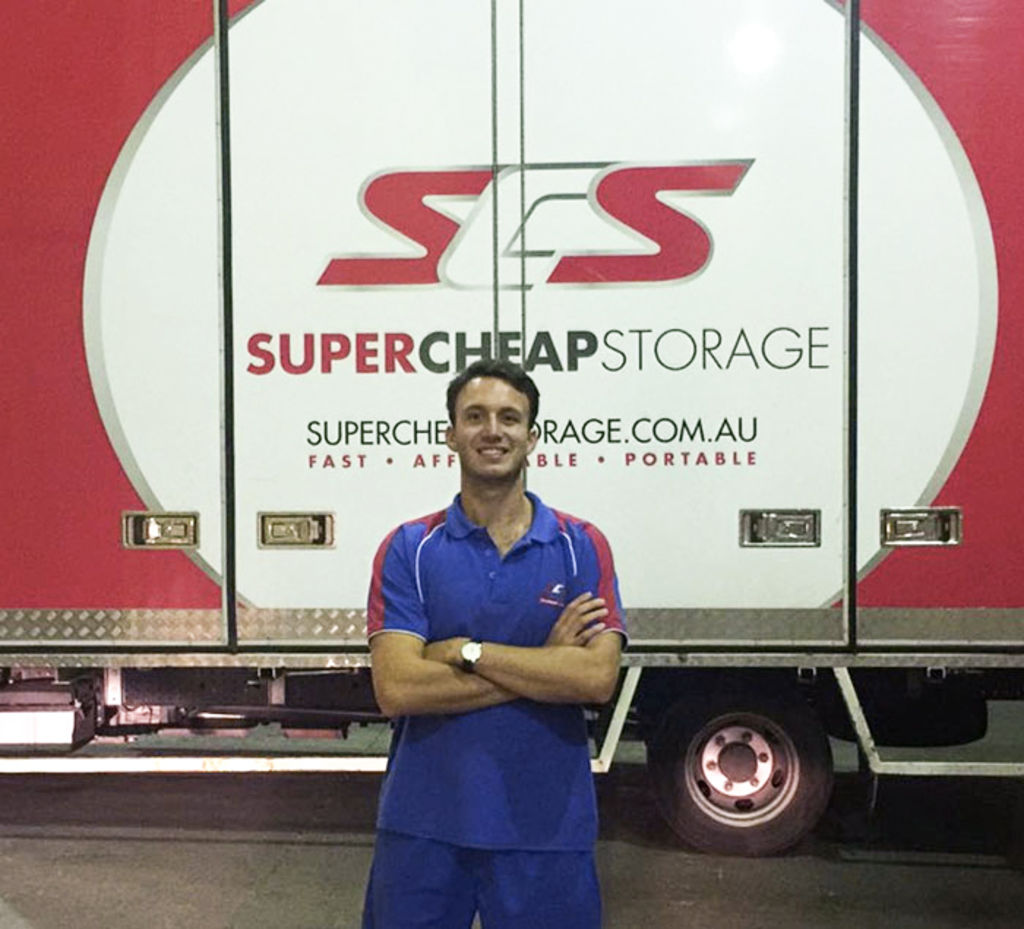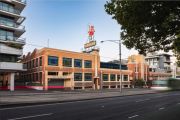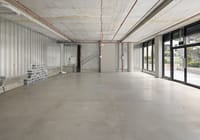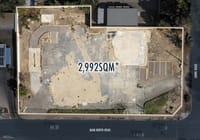
Student taps into Sydney apartment boom with storage business
A 24-year-old Sydney student is capitalising on the city’s apartment obsession and developers’ thirst for former industrial land in the west.
Three years ago, commerce and law student Mark Sindone was looking for an effective business model which would require minimum ongoing maintenance and management.
Two ideas stuck out to him most – a car park business and a storage business.
“I finished my commerce degree and I was looking to run a business in conjunction with finishing the law component of my degree,” Mr Sindone said.
“I was attracted to two main businesses, storage and parking. I looked at their margins. They have huge margins, but huge start-up costs.”
Mr Sindone had $30,000 saved in the form of scholarship money, but the $10 million or so required for either traditional business venture was going to be a tall order.
 Storage on the cheap – portable plywood containers mean Mr Sindone has little outlay making a warehouse storage ready. Photo: Supplied
Storage on the cheap – portable plywood containers mean Mr Sindone has little outlay making a warehouse storage ready. Photo: Supplied
So he came up with an alternative – tapping into Sydney’s ever-growing short-term lease market and capitalising on low start-up costs while sticking to the low-maintenance aspect of the storage market.
“Sydney is going through a huge apartment binge, to fund that expansion they are rezoning huge amounts of land. These were traditionally industrial areas to residential,” he said.
“A warehouse somebody bought for $10 million five years ago might go for $200 million once its been rezoned.”
His storage business revolves around finding short-term leases in warehouse space slated for prospective development, at significantly discounted prices, and basing customers’ belongings there in portable storage containers.
When the lease ends, he finds another warehouse and moves the storage facility.
“I didn’t have $10 million. I saw this thing on the net that they do in America, where the storage company brings a portable facility to you,” Mr Sindone said. “It was much easier to handle, from my perspective.
“It was sort of achievable because the start-up cost wasn’t much – buy the units and a small amount of storage space.”
He was able to team up with a local storage franchise, Supercheap Storage, which supplies the plywood built storage units which are loaded at clients’ homes and then transported back to the warehouse.
 The plywood boxes inside the now demolished Wentworth Point warehouse. Photo: Supplied
The plywood boxes inside the now demolished Wentworth Point warehouse. Photo: Supplied
He purchased the inner west franchise rights and established a facility with 10 units in the suburb of Marrickville.
“It just started off with me. I did everything. I went from studying the books, finished the commerce degree, got an idea of how to value companies, and from there I went from studying the books to drive forklifts, learning how to drive the truck, and still taking the sales calls,” he said.
The cost savings of entering into a short-term lease were phenomenal, Mr Sindone said. He paid significantly less per square metre than for a typical tenancy.
Next, Mr Sindone moved to a facility in Wentworth Point.
“I was in Wentworth point but they’re now building a marina there … so I was there for about two years on these short-term leases, but I had to move when they demolished the warehouse,” he said.
He now operates from a warehouse in Rydalmere, with 800 storage units and a staff of 10, and has added a removalist service to the business.
“The Rydalmere lease is for three years but has a construction clause on it,” he said. “There’s a high chance it gets rezoned.”
The low price of warehouse space, and the rapid expansion of business, has meant he was able to rent out a larger space than initially required and allowed the business to grow.
The landlords who own the warehouse space which would otherwise be left empty until any rezoning has been approved have usually been happy to help out.
“What I’m really trying to do is build a business and people react pretty well to that,” Mr Sindone said.
And business is set to keep booming, if the rate of Sydney’s development is anything to go by.
“Warehouse space in Sydney is so low, prime warehouse space is so low,” he said. “But the secondary market is a different story, all I need is land that is secure and there is plenty of that available.
“Storage is beautiful – no risk – they pay me roughly the same each month. I know exactly what I need to do at the start of each month.
“During the good times people are moving and need storage, and when they’re downsizing they need storage too.”










